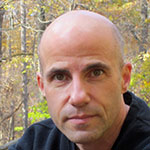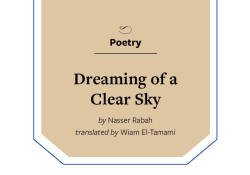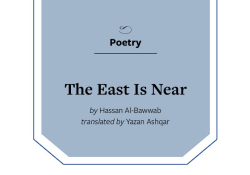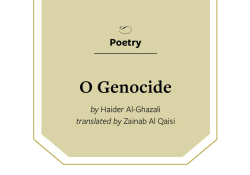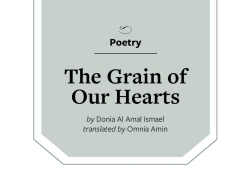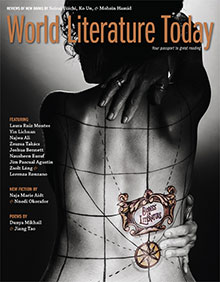Taxonomy

by Gail Caulfield, Villa Montalvo (Italy)
Genesis 2: 18–22
After a while, the glitter
began to fade, the way a
bright star, regarded full-on,
becomes the ghost of itself
behind the shuttered eye.
After a while, he couldn’t
look past the next in line,
couldn’t bear the beastly
swizzle that curved beyond
the perfect sluice of sun
that gilded the perfect pasture
in perfect shades of umber.
Horse. Cow. Rat.
Elephant. Monkey. Mole.
And this was merely
shorthand before the dizzy
permutations . . . family,
genus, species.
After a while, the man
named himself Adam.
He invented time, and
shifts and workloads so
the nameless might not
overtake him like a
foreshadowed throng of
lepers chasing the
hem of a dusty robe.
After a while the creatures
grew restless, demanding
their names of Adam who
threw a trepid glance
over his sunburned
shoulder toward the distant
golden city before he
whispered, Eat or be eaten,
and so inscribed the first
coppery illumination
in the book of the dead,
the maimed and the dying.
After a while, a century had
passed. But even so, the sentence
stood. He had to crouch,
naked and limp between
the legs . . . naming . . . naming . . .
and no creature
that approached, however bright
of eye or soft of pelt, could
stir him from his torpor.
After a while, the last in line
perched upon his outstretched
hand. Swift, he pronounced,
more wish than name,
as it took flight in an elegant
arc above him before dipping
its wings toward
the city’s eastern gate.
After a while, all the whiles
congealed like old blood
in a jagged wound,
and Adam named the ache
that plagued him, loneliness.
He cried out from his
empty bed, felt a fist like
fire enter his side, saw a fairer
form bloom from the snapped
curve of his floating rib.
Like him. And not.
He named her Eve.
And for a while they knew joy,
though soon enough she grew
weary of halcyon days without
surprise, had intercourse
with the diamond-plate serpent
coiled among the waxy leaves
of the Forbidden Tree.
She tasted the fruit
ripe with knowing,
felt the nectar run between
her naked breasts
and so gave birth to desire.
After a while, the one who
gave them breath stepped out
from behind his tangle of
rusted machines, the rancid
tubs filled with things
misshapen.
He told them he knew . . .
had pictures to prove it.
He withered the garden
with a single exhalation,
spat a mouthful of curses
and ordered them gone,
though when the muscular angel
swooped down
with his fiery sword,
they’d already taken
what little they had and
vanished,
having rolled
the thing they named freedom
across their tongues
and found it sweet.
Like spoonfuls
of milk and honey.
